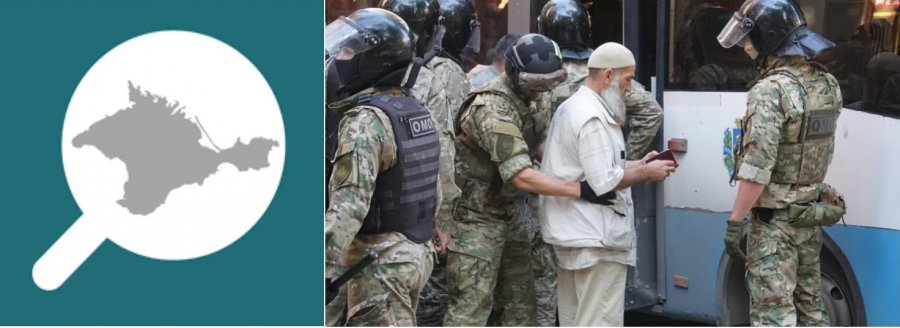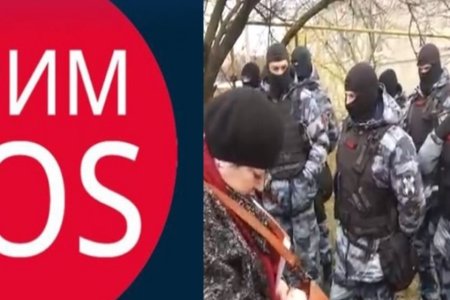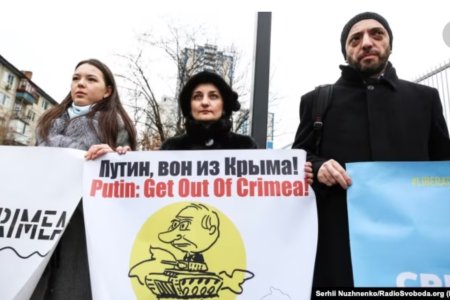
Russia’s Prosecutor General’s Office has formally outlawed the vital Crimean Human Rights Group [CHRG], by declaring its activities “undesirable” in the Russian Federation and occupied Crimea. It is asserted that the human rights group “presents a danger to the constitutional order and the security of the Russian Federation.”
The Russian regime presumably finds such ‘danger’ in CHRG’s close monitoring of Russia’s violations of international law in occupied Crimea and its communications regarding such violations to Ukrainian and international bodies.
In reporting the development, CHRG noted that the NGO’s website has been blocked in occupied Crimea since at least July 2021, also on claims that it ‘encroaches upon the security of the Russian Federation’. In 2020 and 201, at least 20 bans had been imposed upon particular material published by CHRG, with all of the publications pertaining to conscription which Russia is, in clear violation of international law imposing on occupied Crimea. The rulings passed by Russian-controlled ‘courts’ in these cases claimed that the NGO’s information “undermines the foundations of the RF constitutional order; creates the groundwork for violation of the federal set-up of the country and the integrity and inviolability of its territory.” This, it should be stressed, is stated by occupation ‘courts’ with the words about ‘integrity and inviolability’ referring to territory which the entire world recognizes as illegally occupied Ukrainian territory.
The present Russian regime came up with the label ‘undesirable’ as yet another method for eliminating independent civic organizations back in 2015. In July that year, an original ‘patriotic stop list’ of foreign NGOs deemed by the Council of the Federation, Russia’s upper house of parliament to be ‘undesirable’ included the predecessor to CHRG, the Crimean Human Rights Field Mission. It was because of that development that the Crimean Human Rights Group was created that year as a separate entity. Both the original law and amendments introduced in 2021 make it dangerous for organizations and individuals to provide services of any kind, including provision of information, to NGOs deemed, by the regime, to be ‘undesirable’. It is this that is really the problem since the founders and members of CHRG are all from Crimea but are living in mainland Ukraine and have long understood that they would be in danger if they attempted to visit their Crimean homeland.
Olha Skrypnyk, Head of CHRG, told the Zmina Human Rights Centre, that the decision to label them ‘undesirable’ was a logical next step for the Russian regime, following all the attempts to ban its material regarding conscription. She added that, in principle, the decision would have no direct impact on CHRG and would certainly not stop its work. In fact, this is a kind of recognition for the Crimean team, and they can only be pleased that they are seen as a danger to the security of the Russian Federation. The problem, she added, is that the new move would create additional risks to the relatives of CHRG members remaining in occupied Crimea.
Since 2017, Russia has been using appallingly cynical prosecutions and horrific sentences (up to 19.5 years) against civic journalists and activists from the Crimea-based human rights initiative Crimean Solidarity. With members of the Crimean Human Rights Group on government-controlled Ukrainian territory, the regime has resorted to primitive blocking and, now, to repressive legislation on so-called ‘undesirable’ organizations.
CHRG plays a vital role in gathering information for Ukraine’s Crimean Prosecutor and for international courts. Its material is clearly used by European and international bodies reacting to Russia’s ongoing occupation of Crimea and human rights violations. The fact that Russia is trying to crush it only emphasises the importance of its work. Please help highlight this and the Group’s website, in Ukrainian, English and Russian.



